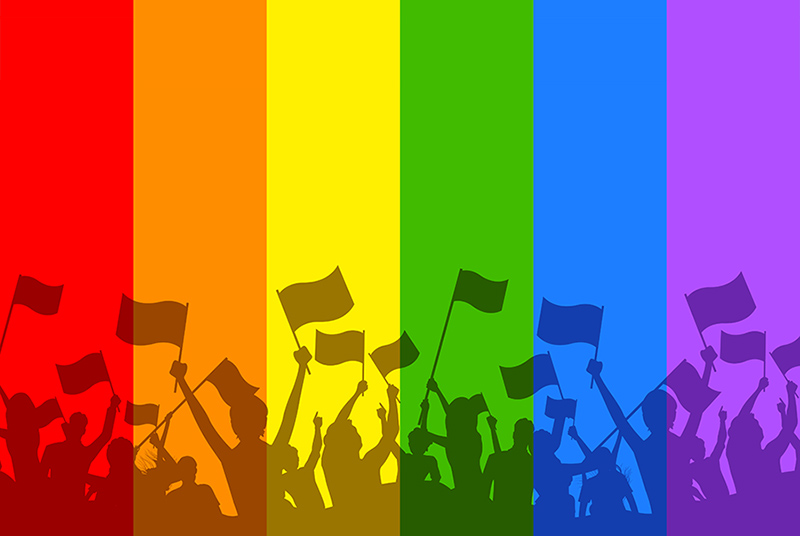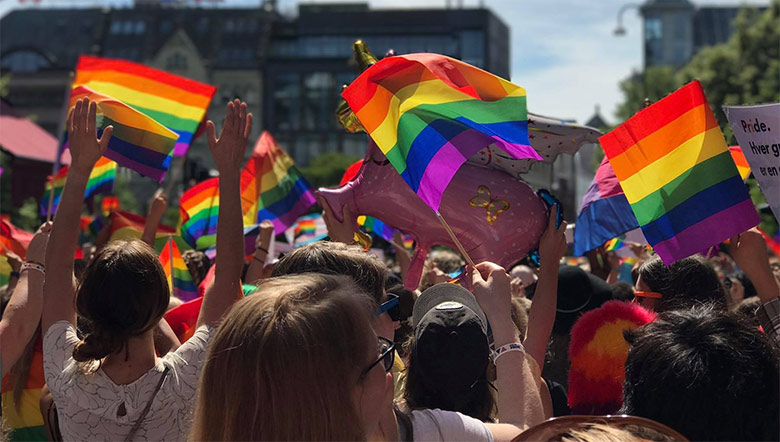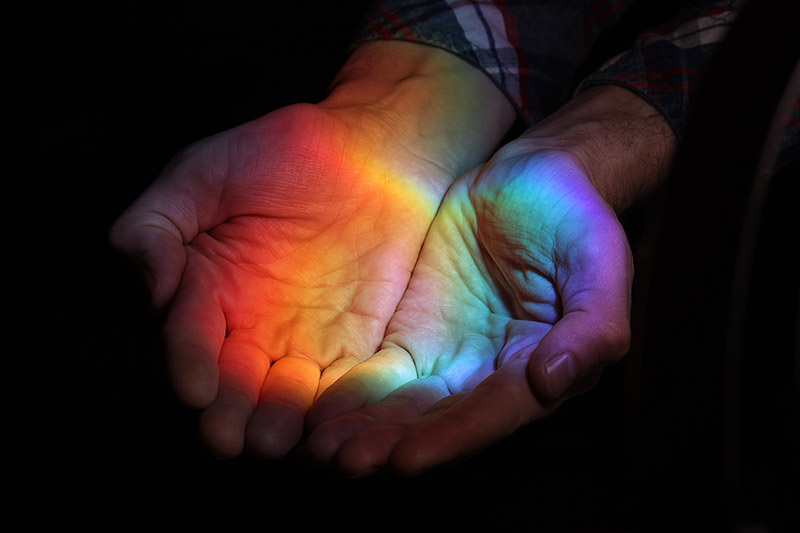
According to recent surveys, Norway is one of the world's best countries to be LGBTQ+. We take a look at the history of gay rights in Norway and what barriers remain in place.
Recent research by two American bloggers has put Scandinavia as the world's friendliest region for LGBTQ+ travellers. The LGBTQ+ Danger Index ranks Sweden as the most friendly country, with Norway placed third.
Beyond that, all the other Nordic nations placed well. The rankings for Finland (7th), Iceland (9th), Denmark (14th) were all in the upper reaches of the results.
The research was designed for travellers, but it looked at eight factors that impact lifestyle in general. These included the legal status of same-sex marriage, legal protections of worker rights, and whether a country had any anti-discrimination or anti-LGBTQ+ “morality” laws in place.
This means the research results were a great starting point for assessing wider attitudes within a culture.
Norway also scores well in the Rainbow Europe country ranking, placing 6th among 49 European countries. The index is based on laws pertaining to same-sex marriage, adoption, rights for transgender people, and more.
Now, let's take a look more closely at the rights LGBTQ+ people have in Norway.

A steady improvement over time to LGBTQ+ rights
As with the other Nordic countries, Norway is regarded as one of the world's most LGBTQ+ friendly nations. Generally speaking, there is high societal acceptance along with many equality laws. Most recently Norway has made major strides forward in the recognition of trans people and other gender issues.
Read more: LGBT Resources in Norway
Norway's gay rights story can best be described as a “slow and steady” one. Same-sex sexual activity has been legal since 1972, when the age of consent was also equalised at 16. Then in 1981, Norway became one of the only countries in the world to include sexual orientation in an anti-discrimination law. But it took many years for many other laws to be brought up to date.
Gay marriage in Norway
Norway made gay marriage legal in 2009. Previously, Norway had been the second country to allow same-sex couples to enter into registered partnerships. This began in 1993, following Denmark in 1989.
Since the gay marriage law passed in 2009 it has not bee possible to create new registered partnerships. However, those with that status can choose to keep it or convert to marriage. In the three years following the change, 754 partnerships were converted to marriages.
Read more: How to get married in Norway
Gay marriage has also been possible in the Lutheran Church of Norway since 2017. When the change was announced the previous year, King Harald spoke about the value of diversity. He also said LGBTQ+ people are “part of the fabric of Norwegian life”. He also described Norwegians as “girls who love girls, boys who love boys, and boys and girls who love each other.”
His comments were termed a welcome gift by campaign groups in a year when populist politics was grabbing headlines. In particular, a neo-Nazi group based in Norway has used social media and leaflets to target the so-called “gay lobby.”

Public opinion remains positive. A 2017 Pew Research Center poll revealed that 72% of Norwegians support same-sex marriage. Less than one-in-five answered negatively.
Discrimination and hate crime
Norway recorded a world first in 1981 when it became the first country to enact an anti-discrimination law that included sexual orientation. This included the provision of goods or services and in access to public gatherings. Hate speech laws were swiftly amended to include LGBT people in the definition.
Anti-discrimination laws on employment have been in place since 1998, while discrimination based on gender has been in place since 2013.
LGBT Parenting in Norway
Under Norwegian law, married and committed same-sex couples are allowed to adopt children. Full adoption rights were granted in 2009, while adoption of stepchildren has been allowed since 2002. Artificial insemination is available for lesbian couples. In such cases, the other partner will have all the rights and duties of parenthood.
LGBT and Norway's military
It is legal for openly gay, lesbian and bisexual people to serve in all Armed Focus. Since 1979, they have held full rights including anti-discrimination. Transgender people are also permitted to serve.
Health issues for LGBT people
Norway was the first country in the world to make PrEP available by prescription from the national health service. PrEP is a daily HIV-prevention drug that is available to those people who are not HIV-positive but are in a high risk group. Since June 2017, gay and bisexual men have been permitted to donate blood in Norway.
Transgender rights
In 2016, Norway introduced a law permitting legal changes of gender with no psychiatric or psychological evaluation required. This also applies to those under 16 but only with parental consent. 190 people applied to change their gender within a month of the law coming into force.
As previously mentioned, transgender people are permitted to serve openly in all Norway's Armed Forces. Transgender people are also covered by Norway's anti-discrimination laws on issues such as housing and employment.


hi. i was looking for info on the fight for lgbt rights in Norway, feom 1945 onwards. do you know of any accounts of this?